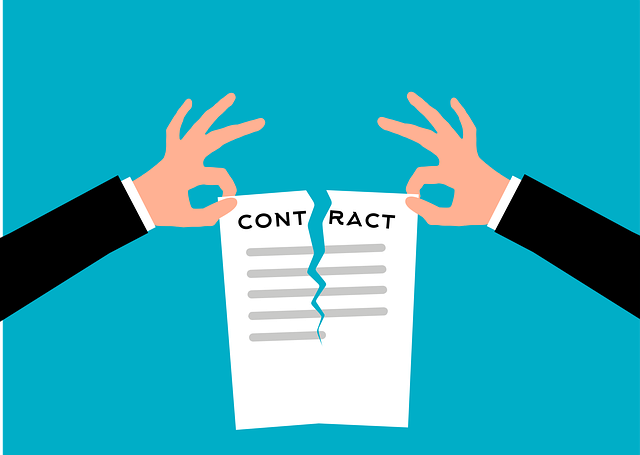Contractual disputes are frequently encountered in the context of business transactions. These occurrences might arise due to divergences on procedures, transactions, and ownership, among various other factors. Several options exist for settling a contractual disagreement, including judicial proceedings, arbitration, and mediation. In this article, Contract Dispute Mediation, we take a look at the mechanism involved.
Please click here to find out more about our Commercial Litigation services.
Free initial telephone discussion
For a free initial discussion on how we can help you if you are involved in a contract dispute, get in touch with us today. We are experienced in dealing with all forms of commercial litigation and the various dispute resolution methods. We will review your situation and discuss the options open to you in a clear and approachable manner. Early expert legal assistance can help ensure you avoid the stress of dealing with these issues on your own. Simply call us on 0345 901 0445 or click here to make a free enquiry and a member of the team will get back to you.
Why mediate instead of litigate?
When confronted with a legal dispute, a business may encounter a challenging predicament. On one side, the firm may be burdened with an unresolved debt, a breach of contract, or another circumstance that will result in financial repercussions for the organisation. Conversely, in the event that individuals opt for legal recourse, they often lack certainty over the precise magnitude of the prospective legal expenses required to contest their case. When a legal dispute involves a cross-border aspect, an additional consideration arises: can the prevailing party effectively implement a court order?
Under such circumstances, it may be advisable to consider alternative methods for resolving the situation. Mediation is increasingly being preferred as the primary method for resolving possible legal disputes. Merely evaluating the advantages and disadvantages of a conflict is insufficient; it is important to possess adequate foresight to move beyond the dispute and contemplate its enduring ramifications. Many disputes exhibit shades of grey, as they involve both advantages and disadvantages for each party involved. The efficacy of proposed solutions should not solely revolve around the moral evaluation of the situation, but rather should strive to appeal to the interests and perspectives of all involved parties. Failure to do so may impede the attainment of a mutually agreeable conclusion.
Mediation offers a platform for all involved parties to articulate their perspectives in a systematic manner, under the guidance of an unbiased mediator who supervises the proceedings. The primary function of a mediator is to initiate the discussion and offer direction on how the conflict can be effectively addressed through the process of negotiation. The mediator will possess expertise in negotiation techniques, as well as a comprehensive understanding of legal principles and commercial acumen.
Expertise in multiple jurisdictions and a deep understanding of the cultural and attitudinal aspects pertaining to the other countries concerned are essential for effective cross-border mediation.
Mediation has the potential to take place at any point prior to the initiation of formal legal proceedings, including instances where a disagreement is nearing the trial stage. Courts frequently demonstrate a willingness to allocate a specific duration for the purpose of engaging in mediation. Mediation offers numerous advantages:
- The consideration of cost holds significant importance as it typically entails a shorter duration.
- In the context of mediation, confidentiality is a fundamental aspect that distinguishes it from court proceedings. Unlike courtrooms, which are open to the public and allow entry to individuals, including members of the press, mediation provides a secure environment where confidentiality is upheld.
- In the context of mediation, it may be observed that each party tends to exert a greater degree of control.
- Once a choice has been mutually agreed upon, there is a far greater probability of compliance, as both sides have collaborated to reach a resolution.
What’s the difference between mediation, arbitration and litigation?
Mediation
In mediation, both parties will meet with a neutral, independent mediator who is trained to facilitate a calm and fruitful discussion in private. The mediator will listen to both parties and help you reach a mutually beneficial agreement that either side may accept or reject.
Arbitration
An arbitrator performs a similar function in broadly similar circumstances, but has the authority to make a legally binding decision on your behalf.
Litigation
Litigation can take longer than arbitration or mediation because it is administered in a court of law. Frequently, it is also more costly. One party will initiate a legal action and both parties will proceed to court where either side’s legal representatives will put forward an argument and a judge will hear both parties out, before reaching a legally binding decision on the matter.
How we can help
We have a proven track record of helping clients involved in contract disputes. There can be an array of issues to take into consideration. We will guide you through all the necessary legal due diligence in a comprehensive and timely manner and support and advise you with all the negotiations. We firmly believe that with the right solicitors by your side, the entire process will seem more manageable and far less daunting.
Please click here to find out more about our Commercial Litigation services.
How to contact our Commercial Litigation solicitors
It is important for you to be well informed about the issues and possible implications of a contract dispute. However, expert legal support is crucial in terms of ensuring a positive outcome to your case.
To speak to our Commercial Litigation solicitors today, simply call us on 0345 901 0445, or click here to make a free enquiry. We are well known across the country and can assist wherever you are based. We also have offices based in Cheshire and London.
Disclaimer: This article provides general information only and does not constitute legal advice on any individual circumstances.



